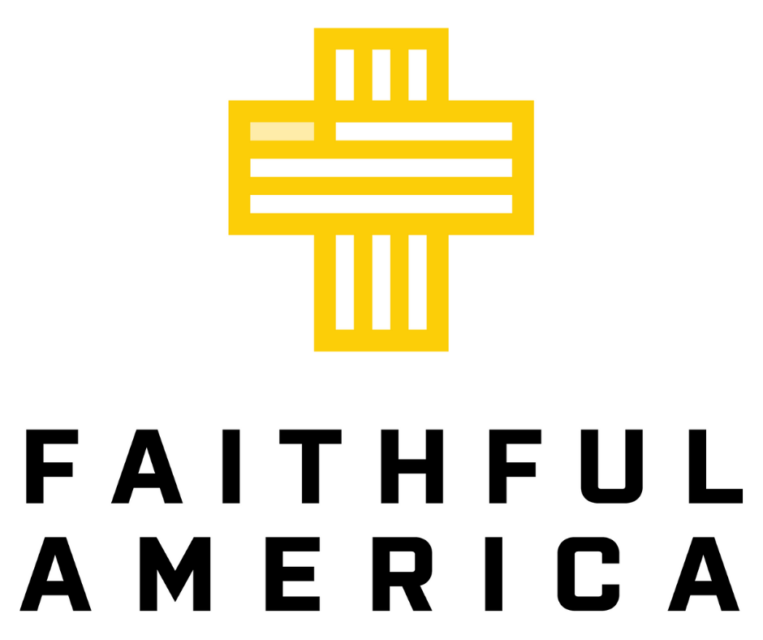
(RNS) — A native Oklahoman, the Rev. Shannon Fleck is a big fan of college football, especially the Sooners, and the University of Oklahoma softball team, which won the 2024 Women’s College World Series.
But when her staff wants to talk baseball, she’s in trouble.
“I’ve got nothing,” said Fleck, laughing at herself in an interview from her home near Oklahoma City.
For the past seven years, Fleck, a pastor and former probation officer, has been the executive director of the Oklahoma Faith Network, helping transform what had been a council of congregations into a network whose goal is to “empower the witness of faith communities and individuals throughout Oklahoma on issues of faith, care and social justice.”
That has meant running programs to strengthen families, helping faith communities respond to the opioid crisis and organizing churches to address issues of race, climate change and the rise of Christian nationalism in the Sooner State.
And starting this week, she’ll enter the activism big leagues: Fleck is the new executive director of Faithful America, a national organization that describes itself as “the largest online community of grassroots Christians putting faith into action for social justice.”
Faithful America, originally founded in 2004 as a project of the National Council of Churches, emerged in the 2010s as a sort of religious analogue to secular activist organizations that rely on online petitions such as MoveOn.org. More recently, the group has focused much of its activism on condemning and countering Christian nationalism, which Faithful America describes as an antisemitic and Islamophobic ideology that “poses a threat to the religious freedom of America’s Jews, Muslims, Indigenous peoples, mainline Protestant Christians, and more.”

Faithful America logo. (Courtesy image)
In an interview this week, Fleck said her experience in Oklahoma has been the perfect training ground for her new role. There she helped challenge efforts to start a state-funded religious charter school under debate in the U.S. Supreme Court, as well as a plan by Ryan Walters, Oklahoma’s superintendent for public instruction, to buy Trump-endorsed Bibles for every classroom in the state.
Heather Cronk, co-chair of the Faithful America board, cited Fleck’s experience in Oklahoma in announcing her new role.
“The Faithful America board is thrilled to be working alongside Shannon as she transitions into her new role as Faithful America’s executive director,” she said. “Shannon stood up to False Prophets like State Superintendent Ryan Walters and the architects of Project 2025 long before any of them became a household name. Her bold leadership emphasizing an active faith and collaboration is exactly the kind of pastoral leadership needed at this particular moment in our nation’s history.”
As a pastor, Fleck said she wants to see people of faith and religious leaders bring their faith to the public square, and to use their values to influence public policy. But she doesn’t want politicians telling people what to believe or try to create policy that conforms to their particular religious views.
“We do not need to have religious perspectives being tossed out on our House and Senate floors as justifications for public policy and decisions made about human rights,” she told Religion News Service.

A boat billboard sponsored by a coalition of groups opposed to Christian nationalism travels around downtown Miami in May 2023 during a ReAwaken America Tour stop. (Photo courtesy Faithful America)
She’s particularly concerned about Christian nationalism, an ideology she argues is distinct from people of faith who are politically active.
“Christian nationalism wants to enforce their specific theological and ideological beliefs,” she said. “Standing in the public square and speaking to your ideological beliefs is one thing, but enforcement of theological beliefs is another entirely.”
Fleck, an ordained Disciples of Christ pastor, has long believed faith should motivate believers to be involved in public life and in addressing social ills. A lifelong churchgoer, her first job after college was as a juvenile probation officer, which she describes as transformative.
“That whole job changed everything about how I saw the world,” she said. “Because I had never seen hurt or pain or poverty or abuse in the ways that I saw doing that job, and once I saw it, I couldn’t unsee it.”
Fleck said she knew she was going to have to do something to address what she had seen there but wasn’t sure what that was. At the same time, she was volunteering part time with the youth group at her church, filling in after the youth pastor left. While she was doing that, a pastor she had met asked Fleck if she had ever thought about seminary.
“I laughed hysterically,” she said. “You can’t mean to be asking me about that.”
But Fleck ended up going to Phillips Theological Seminary in Tulsa, and from the day she arrived knew she was in the right place. She would eventually earn a doctorate from Candler School of Theology, then served in local churches before coming to what was then the Oklahoma Conference of Churches in 2017 as a program director. When the group’s executive director resigned nine months later, she applied for the job and has been the group’s leader ever since.
In 2022, the group changed its name to the Oklahoma Faith Network to reflect a broader mission.
“The word ‘church’ is very limiting,” Fleck said. “It paints one picture in people’s minds. And as an organization, we had been working with people of all faiths for a very long time.” The new name, she said, reflected the group’s hope to be a “more proactive, robust movement to be an alternate voice to religious extremism.”
Fleck said Oklahoma has long been a place where faith has been part of the culture. But that has changed, in part because of the rise of conservative Christian politicians and in part because of shifts in the religious landscape. At the same time as small churches have been aging and on the decline, Oklahoma has seen the rise of more politically active megachurches, with what Fleck called a rhetoric of fear, power and control.
“Our churches are dying,” she said. “And we see in their place these larger, corporate-type churches that function in a much different setting than our community congregations that are losing people and struggle to know why — because they are the churches who did not sign on for fear, power and control.”
Fleck believes the dominance of conservative politicians has had consequences, especially for education, where she said the state has dropped to close to the bottom of national rankings. The state also ranks low in quality of life for women.
Turning that around will take time, she said. And not just in the Sooner State but in communities across the country where Christian nationalism has emerged with force. Fleck, though, has seen the power of community advocacy and networking, and it’s this experience she hopes to take into her new national role at Faithful America. She’s hoping the wisdom of thousands of local, faith-rooted activists can help spur national change.
“I know in my heart of hearts that the change that is going to have to happen is going to happen from grassroots community up,” she said. “So Faithful America will always be in the business and on the mission to get the local level mobilized, resourced and galvanized.”
